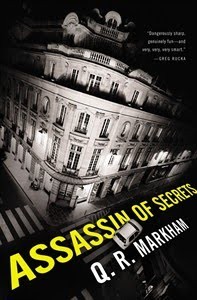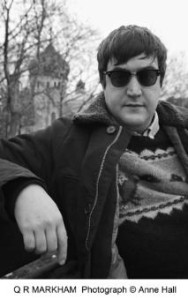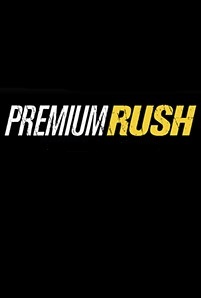So news broke this week that Q.R. Markham’s debut novel, ASSASSIN OF SECRETS, was being pulled from shelves after the publisher (Mulholland Books) discovered that numerous passage had  allegedly been taken from other sources.
allegedly been taken from other sources.
To get a sense of what they mean by “numerous,” follow this handy link. Apparently the only part of the book that Q. R. Markham didn’t plagiarize was the overly generic title and his bio.
My question is, why would a new author do such a thing? And more importantly, after all the plagiarizing scandals of the past decade (see: Stephen Ambrose, Kaavya Viswanathan, et al), how could he blithely expect not to get caught? In the digital era, all you have to do is type in a key phrase, and Google can usually instantly match it to a source. So why take the risk?
I have to wonder what the months leading up to his novel’s release have been like for Q. R. Markham. Was he basking in the thrill of having gotten away with something? Was he w aking up nightly in a cold sweat, shaken by nightmares of being discovered? (Something about his pose in the photo to the left leads me to suspect probably not.) Or had he actually managed to convince himself that the work was his own?
aking up nightly in a cold sweat, shaken by nightmares of being discovered? (Something about his pose in the photo to the left leads me to suspect probably not.) Or had he actually managed to convince himself that the work was his own?
And how did Mulholland Books (an imprint of Little, Brown) get so far along in the process without discovering the malfeasance? The book was released a week ago, which means that ARCs of it made the rounds months earlier. In fact, Publisher’s Weekly gave ASSASSIN OF SECRETS a glowing review, praising it as “quirky” and “entertaining.” My favorite part: “the obvious Ian Fleming influence just adds to the appeal.” Yes, of course, the Ian Fleming “influence.” As in, passages were extracted directly from his James Bond series and dumped into Markham’s narrative.
But he didn’t limit himself to stealing from merely one giant of the spy genre: Robert Ludlum’s books were also liberally borrowed from. Other excerpts have been attributed to John Gardner, Charles McCarry, Geoffrey O’Brien, and James Bamford. I have to admit to being a bit tickled by the inclusion of my pal Raymond Benson’s HIGH TIME TO KILL. If you want a great espionage read, go to the source on that one.
Here’s the thing. I’ve been forced to jump through numerous legal hurdles with each book, ranging from acquiring permissions for song excerpts and poems, altering university and town names, and changing one benign reference to Star Wars for fear of igniting a legal response from mighty Lucasfilm. So who feel asleep on the job here?
I have a frie nd who recently discovered that his novel ULTIMATE RUSH was being made into a film by Sony Pictures- yay, right? Except here’s the rub: they never optioned it. They changed the title to PREMIUM RUSH, altered a few character names, but adhered to the overall plot about a bike messenger on the run. Joe has been fighting them in court, so
nd who recently discovered that his novel ULTIMATE RUSH was being made into a film by Sony Pictures- yay, right? Except here’s the rub: they never optioned it. They changed the title to PREMIUM RUSH, altered a few character names, but adhered to the overall plot about a bike messenger on the run. Joe has been fighting them in court, so  far to no avail. Theft, pure and simple. Apparently in Hollywood, it’s easier to get away with that sort of thing.
far to no avail. Theft, pure and simple. Apparently in Hollywood, it’s easier to get away with that sort of thing.
This has to be hugely embarrassing for Mulholland, especially since it’s a newer imprint that just started releasing books this past April. The question now is what happens to Markham? His second book has been canceled (obviously, although I’d love to see who he robbed to write that one), and I’m guessing he’ll be asked to return the advance. But will he also be sued by Mulholland? How about the people whose work he co-opted? (Here’s your shot at the big bucks, Ray).
Anyway, here’s the takeaway. You never rip off another writer’s clever turn of phrase–ever. It’s cheap and wrong and basically illustrates that you’re incapable of an original thought. Shame on Q. R. Markham for thinking he could get away with it.
